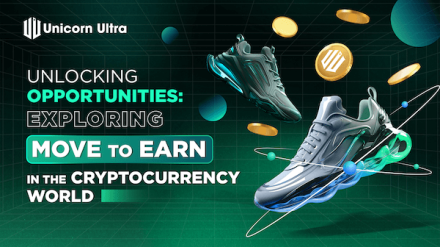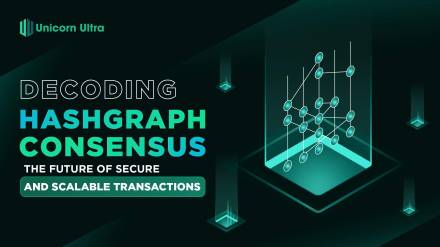In today's digital age, the concept of tokens has gained significant traction, revolutionizing the way we think about value exchange and ownership. From cryptocurrencies to in-game assets and utility tokens, tokens have become a fundamental building block of the digital economy. So what is token? In this blog, we will dive deep into the world of tokens, unraveling their definition, creation process, and diverse applications across different industries. Join us as we explore the exciting and ever-expanding realm of tokens.
Table of Contents
What is Token?
Tokens represent digital assets that are created, stored, and transferred on various blockchain platforms. They can represent anything of value, including currency, ownership rights, or access to specific services or products. Unlike traditional physical assets, tokens exist solely in the digital realm, utilizing the underlying blockchain technology for security, transparency, and immutability.
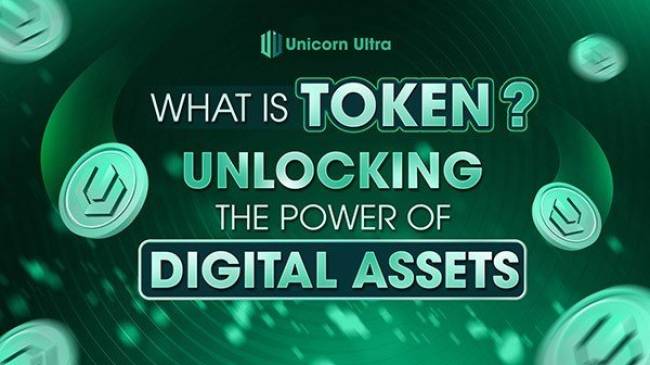
Types of Tokens
There are several types of tokens, each serving a unique purpose within their respective ecosystems. Some common types include:
Cryptocurrencies
Cryptocurrencies, such as Bitcoin and Ethereum, are perhaps the most well-known type of tokens. They act as a medium of exchange, enabling secure and decentralized transactions across borders without the need for intermediaries.
Utility Tokens
Utility tokens are designed to provide access to a specific product or service within a decentralized application (DApp) or blockchain platform. These tokens are used to pay for fees, access premium features, or participate in voting and governance mechanisms.
Security Tokens
Security tokens represent ownership rights to traditional assets, such as shares in a company, real estate, or investment funds. These tokens are subject to regulatory frameworks and offer investors the potential for financial returns, similar to traditional securities.
Token Creation Process
Tokens are typically created through a process known as tokenization, where a real-world asset or concept is represented and transformed into a digital form. The creation process often involves deploying smart contracts on a blockchain platform, which defines the token's functionality, supply, and distribution mechanisms.
Use Cases for Tokens
Tokens have found extensive use in various industries, transforming the way we interact with digital assets. Some notable use cases include:
Finance and Payments
Tokens enable efficient and borderless transactions, eliminating intermediaries and reducing costs associated with traditional financial systems. They also facilitate innovative financial instruments, such as decentralized lending, staking, and yield farming.
Gaming and Non-Fungible Tokens (NFTs)
Tokens have revolutionized the gaming industry by enabling the creation and ownership of unique in-game assets through NFTs. Players can buy, sell, and trade virtual items securely, fostering new opportunities for the gaming economy.
Decentralized Applications (DApps)
Tokens play a vital role in powering decentralized applications, providing incentives for users to participate and contribute to the network. They also facilitate decentralized governance, allowing token holders to vote on proposals and shape the future development of the platform.
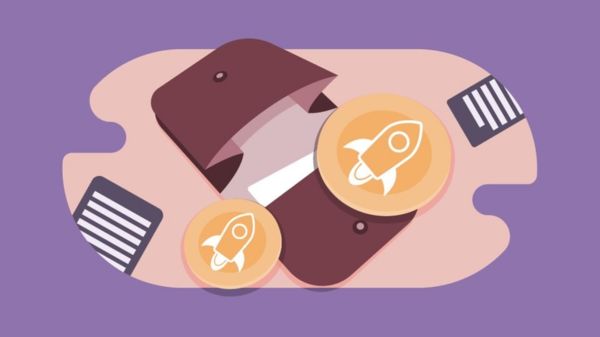
Token Security and Regulation
As tokens gain prominence, ensuring their security and complying with regulatory frameworks becomes essential. Token issuers must prioritize robust security measures, including secure wallet storage and smart contract audits. Additionally, regulatory authorities are actively working to establish guidelines and frameworks to govern token offerings and trading activities.
How to use tokens?
Tokens are digital assets that are typically created and deployed on blockchain platforms. They can serve various purposes, such as representing ownership, accessing services, participating in governance, and facilitating transactions within decentralized applications (DApps) and smart contracts. Here's how to use tokens effectively:
- Acquiring Tokens: Obtain tokens through various means, including purchasing them from cryptocurrency exchanges, participating in token sales (Initial Coin Offerings or ICOs), or earning them through activities like staking, yield farming, or airdrops.
- Storing Tokens: Store your tokens in a cryptocurrency wallet that supports the specific token's blockchain. Wallets can be hardware wallets, software wallets (e.g., desktop or mobile wallets), or web-based wallets.
- Sending and Receiving Tokens: Use your wallet to send tokens to other wallet addresses or receive tokens from others. You will need to know the recipient's wallet address and specify the amount of tokens to send.
- Token Transactions: Tokens are transferred between wallet addresses as part of blockchain transactions. Transactions are recorded on the blockchain, ensuring transparency and immutability.
- Participating in DeFi: Many tokens are designed for use in DeFi protocols. You can provide liquidity to liquidity pools, stake tokens, borrow and lend, or participate in yield farming and liquidity mining using specific tokens.
- Governance Participation: Some tokens grant holders voting rights in the governance of decentralized platforms. You can participate in voting on protocol upgrades, fee changes, or other decisions that impact the project's development.
- Accessing Services: In some cases, tokens act as access keys to certain services or features within DApps. Holding a specific token may unlock exclusive features or benefits.
- Reward Distribution: Tokens are often used to distribute rewards for certain activities. For example, staking tokens may entitle you to earn staking rewards, and yield farming may provide rewards in the form of additional tokens.
- Utility Tokens: Some tokens serve as utility tokens within a specific ecosystem, enabling users to access goods or services within a particular platform.
- Digital Asset Investment: Tokens can also be used as an investment vehicle. Investors may buy tokens with the expectation that their value will increase over time.
It's essential to understand the specific use case and utility of each token you own. Different tokens serve different purposes, and their functionalities vary depending on the underlying project or platform. Always conduct thorough research before using or investing in a token, and be aware of any associated risks. Additionally, keep your wallet and private keys secure to protect your token holdings.
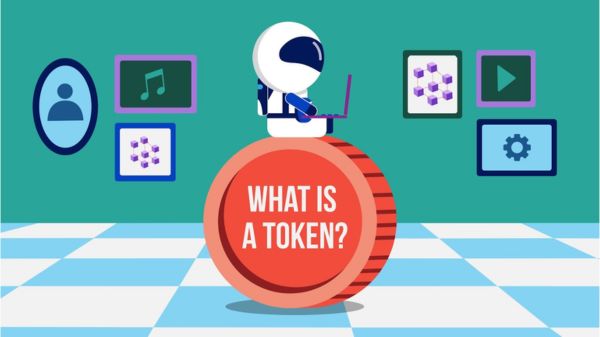
What is the future of tokens?
The future of tokens holds great promise and potential as blockchain technology continues to evolve and gain mainstream adoption. Tokens, which represent digital assets and are created and managed on blockchain platforms, have already demonstrated their versatility and usefulness in various sectors. Here are some key trends and possibilities that may shape the future of tokens:
- Increased Tokenization of Assets: We are likely to see a significant increase in the tokenization of traditional assets, such as real estate, stocks, bonds, and commodities. Tokenization enables fractional ownership, increased liquidity, and accessibility to a broader range of investors.
- DeFi Expansion: Decentralized Finance (DeFi) has been a major driver of token adoption. DeFi applications have unlocked various financial services like lending, borrowing, yield farming, and decentralized exchanges using tokens. The future of tokens may see even more sophisticated DeFi protocols and broader integration into traditional finance.
- Interoperability: With the development of blockchain interoperability solutions, tokens from different blockchains can be exchanged seamlessly. This interoperability can enhance liquidity, reduce friction, and promote collaboration between different blockchain ecosystems.
- Enhanced Governance Tokens: Governance tokens allow users to participate in the decision-making process of a project or platform. The future may see more sophisticated governance models, empowering token holders to influence project developments, parameter adjustments, and funding allocations.
- Non-Fungible Tokens (NFTs) Advancements: NFTs, unique tokens representing digital or physical assets, have gained immense popularity in areas like art, gaming, collectibles, and intellectual property rights. The future may see more innovative use cases for NFTs, such as tokenizing virtual real estate, music royalties, and digital identities.
- Central Bank Digital Currencies (CBDCs): Governments and central banks are exploring the issuance of CBDCs using blockchain technology. These digital currencies could be tokenized representations of national fiat currencies, offering faster and more efficient cross-border transactions.
- Decentralized Identity and Privacy Tokens: Token-based solutions could play a crucial role in decentralized identity systems, giving users control over their personal data and allowing them to share it securely across various applications.
- Green and Sustainable Tokens: As environmental concerns become more prominent, there could be a focus on green and sustainable tokens. Projects may explore using proof-of-stake (PoS) or other eco-friendly consensus mechanisms to reduce energy consumption.
- Regulatory Clarity and Compliance: The future of tokens will likely involve more regulatory clarity as governments and financial regulators establish frameworks for token issuance, trading, and usage. Clear regulations can foster institutional adoption and create a more secure environment for investors.
- Cross-Industry Token Use: Tokens could extend beyond finance and technology to find applications in supply chain management, healthcare, voting systems, and more. Blockchain-based tokens have the potential to revolutionize various industries.
It's important to note that the future of tokens will be shaped by ongoing technological advancements, market demand, regulatory developments, and the overall growth of the blockchain industry. As the space evolves, it will be crucial to address challenges related to scalability, security, user experience, and inclusivity to unlock the full potential of tokenization and blockchain technology.
As we've explored the diverse world of tokens, we've gained a deeper understanding of their definition, creation process, and wide-ranging applications. Whether it's cryptocurrencies, utility tokens, or security tokens, these digital assets offer unprecedented opportunities for value exchange, ownership representation, and participation in decentralized ecosystems. By embracing the power of tokens, individuals and businesses can tap into a new era of digital innovation and unlock the full potential of the tokenized economy. So, the next time someone asks, "What is token?" you'll be well-equipped to explain the transformative role it plays in the digital landscape. Follow https://uniultra.xyz/ for more blockchain updates.



